Morocco has a rich history, stunning landscapes, diverse culture, and renowned hospitality traditions. Travelers from all over the world visit Morocco not only to explore the country’s sights but also to experience the warmth and kindness of the locals. From arrival, visitors are welcomed with open arms and made to feel like a part of the community. This hospitality is not just limited to hotels and restaurants. Still, it extends to the streets, markets, and even the homes of the locals. We will delve deeper into Moroccan hospitality and explore what makes it so unique. We will discuss the cultural and historical influences that shape hospitality, share some tips on connecting with locals, and hear stories from visitors about their experiences of Moroccan hospitality.
Moroccan hospitality: The heart of the culture
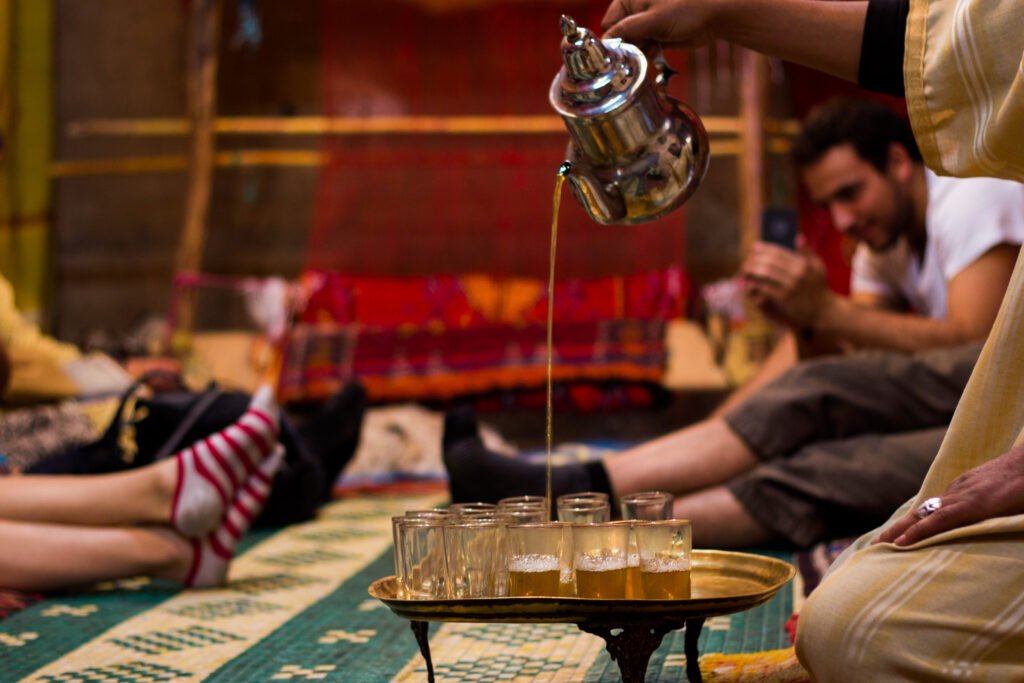
Moroccan people worldwide recognize the renowned hospitality of their culture for its warmth and generosity. The Moroccan people consider welcoming guests a sacred duty and extend hospitality beyond providing accommodation and meals. They treat guests with honor and respect, regarding them as blessings. This attitude often surprises visitors who experience firsthand the Moroccan culture of hospitality.
A common sight that visitors may notice upon arrival is the traditional greeting of “Salam Alaikum,” which means “peace be upon you.” This greeting is integral to Moroccan culture and reflects the country’s Islamic heritage. It sets the tone for the hospitality that visitors can expect to receive throughout their stay.
Moroccan hospitality goes beyond just the initial greeting, as locals may invite visitors into their homes for tea or a meal and even offer them a place to stay for the night. Moroccans are proud of their culture and eager to share it with visitors in any way they can.
Moroccan hospitality expresses itself through the act of sharing meals. Moroccans take great pride in their cuisine and view it as a way to unite people and demonstrate love and respect. Moroccan families even invite strangers to join them for meals, showcasing the openness and generosity of the culture.
Making connections: How to connect with locals in Morocco
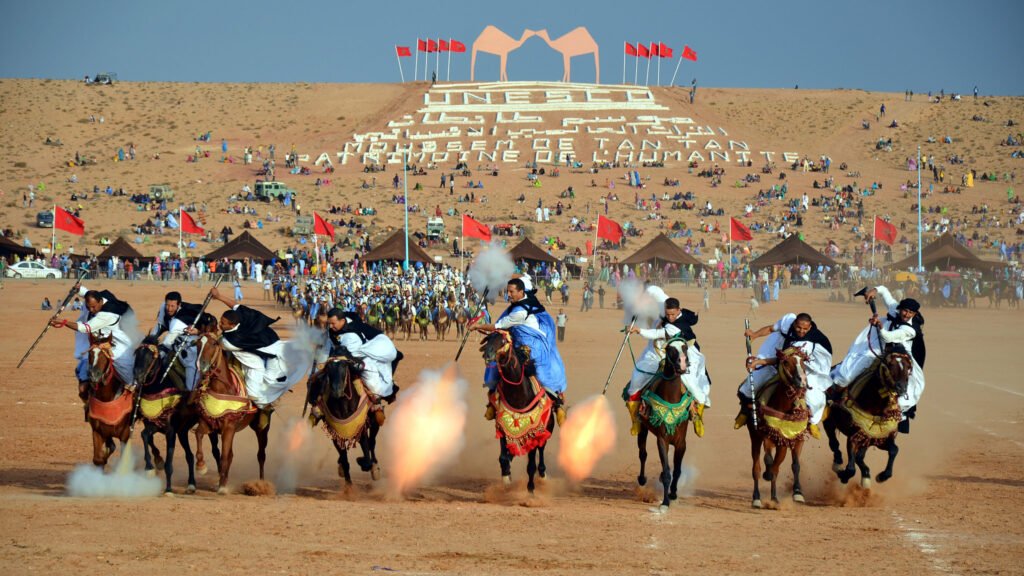
Morocco prides itself on its hospitality and welcoming spirit. Locals are generally friendly and open and enjoy engaging with visitors. If you want to experience this warmth, connecting with the locals is one of the best ways. However, connecting with locals in a foreign country cannot be exceptionally comforting for some travelers. Here are some tips to help you connect with locals during your stay in Morocco.
Firstly, learning a few basic Arabic or French phrases can go a long way in breaking the ice and showing respect for the local culture. Even a simple salute like “Salam Alaikum” (peace be upon you) or “Bonjour” can be powerful. Secondly, seek chances to experience local activities, whether joining a soccer game or taking a cooking class. Participating in local activities can help you connect with the people and learn more about their culture.
Another excellent way to connect with locals is by staying in a riad or guesthouse instead of a hotel. Many guesthouses in Morocco are traditional Moroccan houses known as riads, which feature an interior courtyard. Staying in a riad will allow you to interact with the owners and staff, who can offer insider tips on local customs, events, and places to visit.
Lastly, being open-minded and respectful is crucial. Remember that you’re a guest in someone else’s country and culture. Take the time to listen to someone’s stories and perspectives and be willing to share your own. By connecting with locals in Morocco, you’ll gain a deeper appreciation for the country and its people and create memories that will last a lifetime.
Moroccan traditions: How they shape hospitality
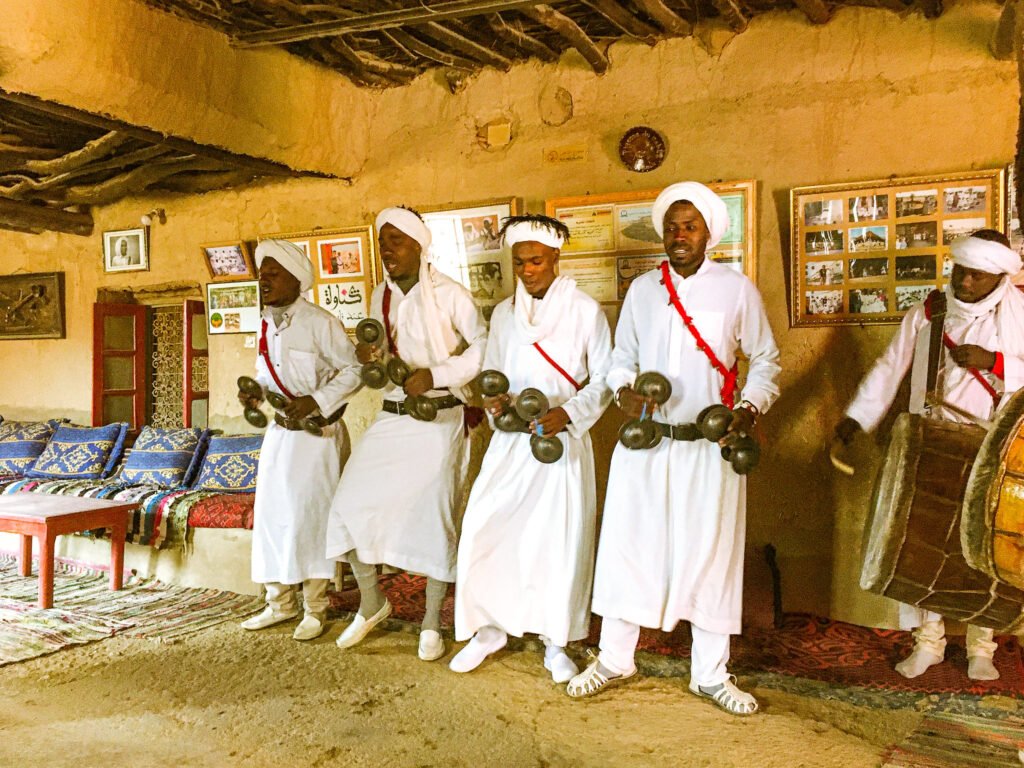
Moroccans have a long-standing tradition of hospitality deeply rooted in the country’s rich cultural heritage and customs. They believe in welcoming guests with open arms and treating them like family. The traditional Moroccan phrase “L’khir F’dar” perfectly embodies this value by emphasizing that guests should always receive the best treatment while staying with their hosts.
The concept of “Baraka” plays a vital role in shaping Moroccan hospitality. It refers to the belief that positive energy wraps specific individuals or places, which brings good luck and prosperity. Moroccans believe this energy can be shared and spread through hospitality, such as offering guests food, drink, and a warm welcome.
Another important concept that shapes Moroccan hospitality is “Adab,” a term referring to social norms and customs guiding Moroccan behavior. Adab encompasses many aspects of behavior, from how one greets others to how one conducts oneself in social situations.
The “Beldi” concept is also fundamental to Moroccan hospitality. It means “of the land” and celebrates local culture and traditions. Hospitality in Morocco embodies celebrating local culture and traditions, as seen through local ingredients and materials, such as serving traditional Moroccan dishes and utilizing hand-woven textiles and pottery.
Many of the customs and traditions surrounding hospitality in Morocco have their roots in Islamic teachings and practices. Islam places great emphasis on the importance of hospitality, and Moroccans often view welcoming guests as a way to honor the teachings of the Prophet Muhammad. Furthermore, a rich tapestry of cultural traditions, values, and beliefs shapes Moroccan hospitality, ensuring visitors can expect to experience a warm and welcoming atmosphere and an appreciation for the country’s unique cultural heritage.
Experiencing Moroccan hospitality: Stories from travelers
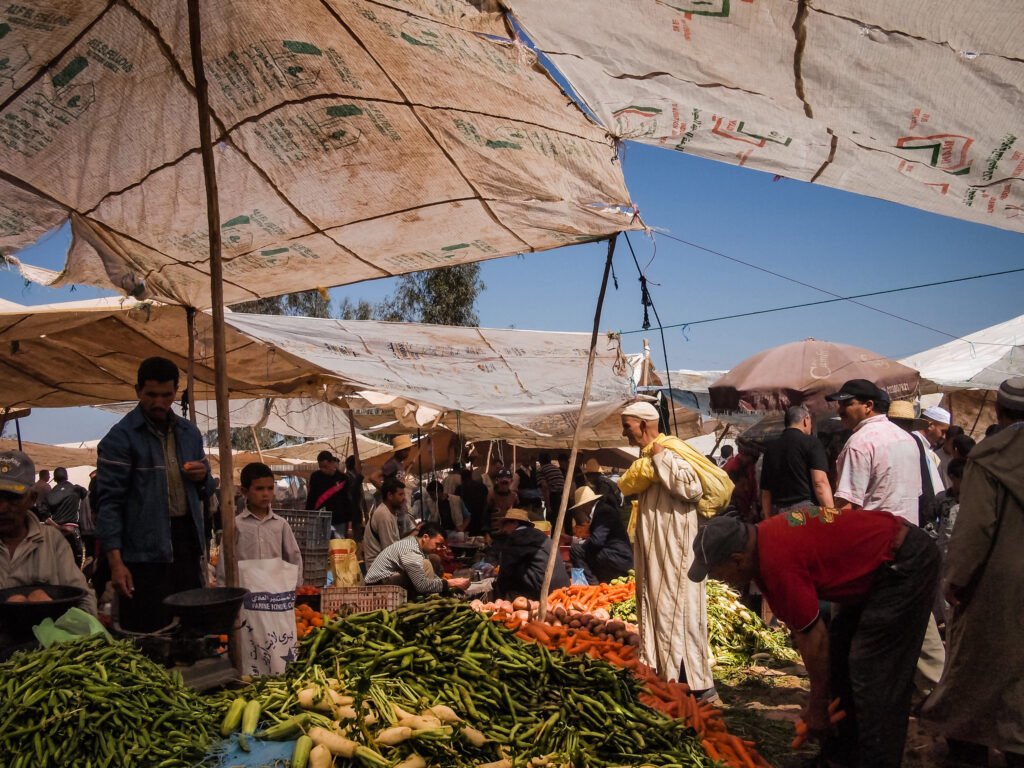
Moroccan hospitality is a notable aspect of traveling to the North African country. Visitors often encounter kind and generous locals, resulting in many travelers sharing their stories of warmth and welcoming people.
One such visitor, Amy, was lost in the narrow streets of Fez when a local shopkeeper invited her into his shop for tea. He helped her find her way and showed her hidden gems in the medina that she wouldn’t have discovered alone.
Similarly, John, a traveler from the US, was helped by a taxi driver who went out of his way to ensure John reached his destination safely. The driver refused payment and said, “You are a guest in my country; it is my duty to help you.”
These stories showcase the cultural value Moroccans place on hospitality. They take great pride in it and view it as an important part of their culture, from offering tea to strangers to inviting guests into their homes for a traditional Moroccan meal. Customs and traditions are centered on making guests feel comfortable and welcome.
Conclusion
In conclusion, Moroccan hospitality reflects the country’s culture, which is deeply rooted in its traditions and values. Visitors to Morocco are greeted with a genuine warmth and hospitality that is unmatched. Visitors can immerse themselves in the country’s rich cultural heritage by engaging with locals, participating in cultural practices, and sharing travel experiences. Choosing Morocco for your next travel destination will undoubtedly lead to a remarkable and rewarding experience filled with warmth, kindness, and unparalleled hospitality.
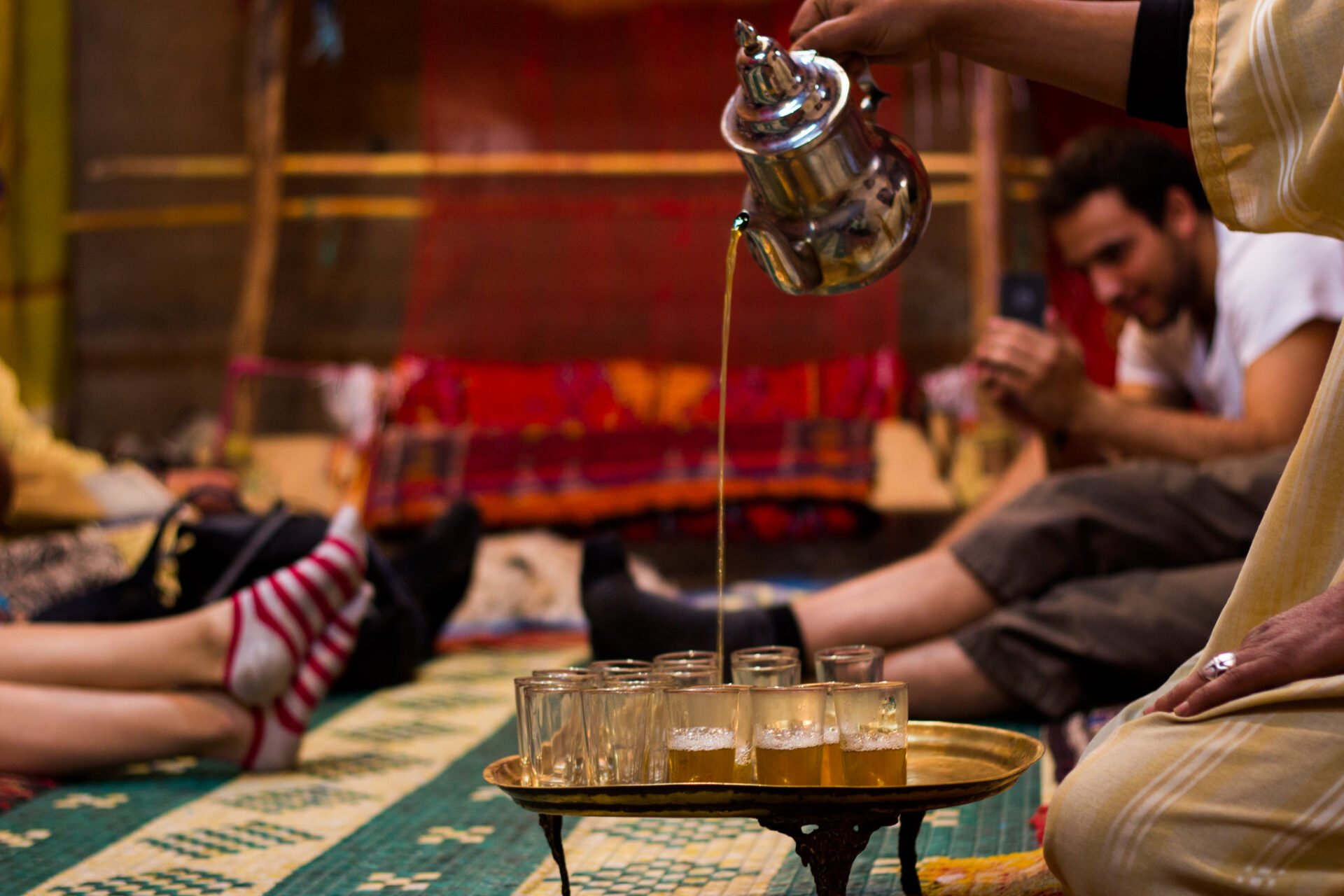
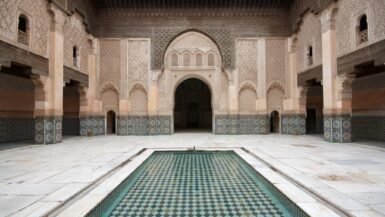
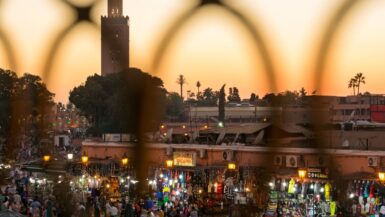
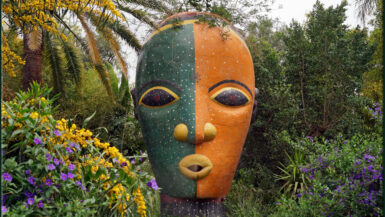
Leave a reply